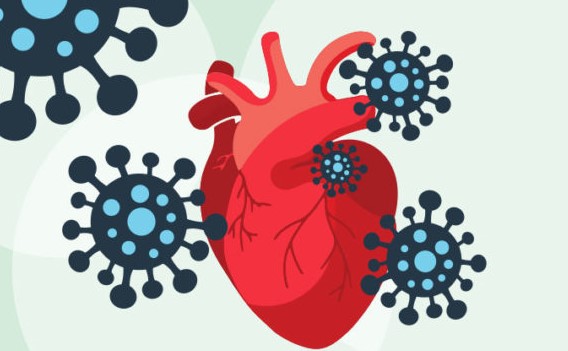What heart patients should know about corona virus?
Apr 19, 2022
Are heart patients high risk for Covid, What heart patients should know about coronavirus?
Covid disease is caused by the virus, was first reported in the Chinese city of Wuhan in December and has since sickened hundreds of thousands of people and killed thousands around the globe. For most people, in approx. 80% of cases the illness is mild. However, the covid virus can cause severe illness with complications like pneumonia, organ failure, and even death in patients with underlying health conditions, such as cardiovascular disease, high BP, diabetes, or cancer.
For people with underlying heart disease and issues, the concern is serious. It appears people over 65 years of age with coronary heart disease or hypertension, are more likely to be impacted and to develop more severe symptoms.

How does covid impact heart, Are heart patients high risk for Covid
The Covid Virus could affect heart disease patients in many ways.
- Its main target is the lungs. However, it could affect the heart, especially a diseased heart, which has to work harder to get oxygenated blood throughout the body.
- It could exacerbate problems for someone with heart failure, where the heart is already struggling in pumping efficiently.
- Someone with an underlying heart issue also could have a less robust immune system. A person’s immune systems weaken as they age, and it does not respond strongly when exposed to viruses.
Covid precautions for heart patients, safety precautions for covid 19 to keep in mind
- Keep washing your hand, keeping surfaces clean, and avoid travel to areas with outbreaks.
- Follow social distancing
- Avoid shopping trips or social visits
- Stay at home if you’re sick; cover your cough; wash your hands
Take care of your heart while staying at home
Self-quarantine can lead to unhealthy eating habits. To avoid stress, exhaustion, and other negative consequences, make sure you follow a schedule every day and maintain a good and healthy lifestyle:
- Keep doing exercises, eat a balanced diet, stay hydrated and get adequate sleep.
- Maintain your social network remotely and communicate with your friends and family members on a regular basis.
- Limit the information you consume about the outbreak and the time you spend on it (Don’t Overthink), and only trust reliable sources (avoid fake News).
WHO has recommended 150 minutes of moderate-intensity or 75 minutes of vigorous-intensity physical activity per week, or a combination of both. These recommendations can be achieved even while staying at home:
- Take short activity breaks during the day.
- Look for an online exercise class.
- Whenever possible Walk, stand-up, and relax.
- Stay physically active while at home with the set of home-based exercises









